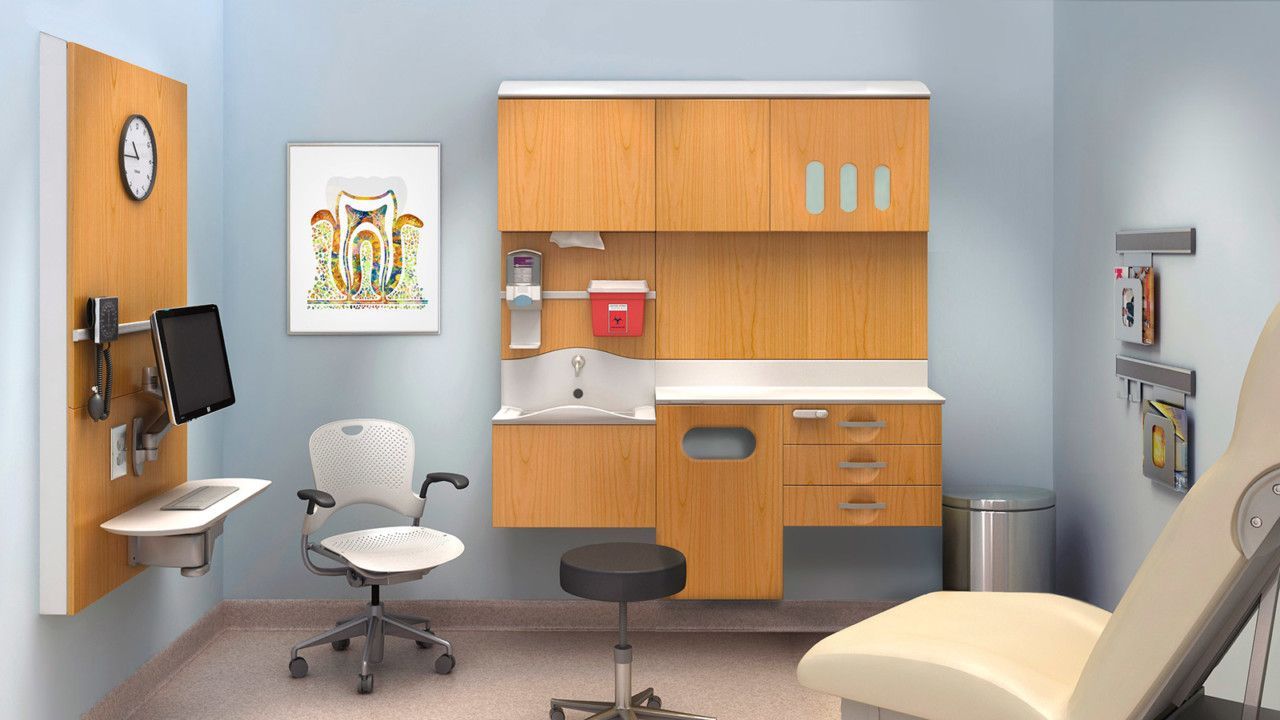Can inanimate objects like cabinetry impart genuine empathy to health care environments?
“IF THE SYSTEM makes the caregiver more effective, the patient will do better.” That’s a philosophy renowned designer Gianfranco Zaccai brings to health care, and it helped drive the creation of Compass cabinetry from Herman Miller. Anyone can put together a logical assemblage of drawers and work surfaces, but Compass exemplifies what’s possible when designers with diverse backgrounds apply heretofore unseen levels of deep understanding to previously ordinary things.


Designs on success: Gianfranco Zaccai says health care environments must provide comfort and reassurance for patients while offering practitioners adaptability with emerging technology.
Zaccai is adamant about not taking for granted what was generally accepted as true in the past. He and his team do their own research, he says, because “you really can’t get the depth of understanding you need from a document someone hands you. You have to get out in the real world to see for yourself what happens within the context of a real setting, to talk with people and observe how they interact with objects and environments.”
Born in Italy, Zaccai grew up in the United States. He graduated from Syracuse University and worked as a designer for clinical diagnostic devices before founding the design firm Continnum. “The fusion of the two cultures, American and Italian, was a great learning experience for me because the approaches are so different yet synergistic,” he says. “Back then, in the U.S., design was all about form following function, while in Italy, other sensibilities also came into play: emotion, tradition and culture.”
The yield of his rigorous approach: Compass creates an environment that’s at once credible and familiar. More importantly, Zaccai says, it “communicates that the facility or organization cares for you, the patient, as a person. When you’re a patient, your world is limited. If we can make a welcoming place for the patient and family to interact, where they are grounded and surrounded by what is familiar, then patients will get better more quickly.”




